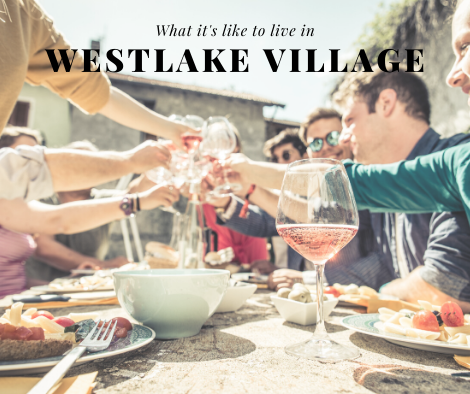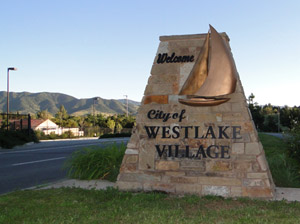 Homeowner Associations (a.k.a. HOAs) are common in the Conejo Valley.
Homeowner Associations (a.k.a. HOAs) are common in the Conejo Valley.
You might think condos and townhomes when you think HOA, but as you start your search you’ll notice many of the single family neighborhoods have them too.
There are pluses and minuses to having an HOA. The main downside being the cost – they can be pricey but some homeowners will say the benefits outweigh the monthly fee. Others, on the other hand, view them as an unnecessary expense. Either way, chances are good that you’ll come across an HOA or two and need to weigh your options.
Condos and Townhomes
Technically speaking, owning a condo or townhome means you own the space between the walls. The HOA owns the actual structure and is responsible for its upkeep.
For example, when the time comes for some new exterior paint or a new roof, the HOA covers it. Fire insurance (and quite often earthquake insurance) is also paid by the HOA and all common areas like community pools, tennis courts, and landscaping are maintained through HOA dues.
CVG PRO TIP: You should still look into getting your own type of renter’s insurance policy. It’s usually only about $1000 a year and will cover the loss and damages of personal items.
 HOA fees can vary drastically from complex to complex. Generally speaking they run from $500-$800 in the Conejo Valley – give or take a bit on either side. Some light reading and due diligence will give specifics on what exactly is covered by the HOA. In addition to the basic items mentioned like exterior and community maintenance, some HOAs will also pay for water and trash. Shadow Ridge in Oak Park will even pay for basic cable – but don’t get too attached to this idea, the majority of HOAs don’t cover utilities.
HOA fees can vary drastically from complex to complex. Generally speaking they run from $500-$800 in the Conejo Valley – give or take a bit on either side. Some light reading and due diligence will give specifics on what exactly is covered by the HOA. In addition to the basic items mentioned like exterior and community maintenance, some HOAs will also pay for water and trash. Shadow Ridge in Oak Park will even pay for basic cable – but don’t get too attached to this idea, the majority of HOAs don’t cover utilities.
CVG PRO TIP: Besides the basics, be sure to consider the amenities included when comparing HOA fees. Is there a pool? A tennis court? Is the community gated? In larger communities, HOAs are usually cheaper since the cost is spread across more homes.
Planned Unit Developments
Planned Unit Developments (PUDs) are less common in the Conejo Valley, but you will run into them – i.e Chateau Park in Agoura Hills. Contrary to condos and townhomes, PUD owners are actually responsible for the space between the walls and the structure – even though it’s attached to the neighbor.
If the roof leaks, it’s up to the homeowner to make repairs. The HOA dues usually cover things like common area maintenance and insurance – pool upkeep, and community landscaping. While the monthly dues will likely be cheaper, you may get a special assessment when it’s time to change the roof or other required upkeep is needed.
Single Family Homes
Many of our Conejo Valley neighborhoods have an HOA. Especially in Westlake Village, Agoura Hills and Oak Park. They are less common in Thousand Oaks and Newbury Park, but they’re still there.
If it’s a gated community and/or there’s a pool, an HOA is guaranteed. However the fee will be substantially less than a condo or townhome since you’ll own the structure and be responsible for your own upkeep and homeowners insurance.
Some communities that have very little or no common areas will still have a small HOA or in some cases, a voluntary HOA. That’s to keep the general look of the community clean and uniform. This will keep your neighbors from painting their house pink or parking their jet ski in the driveway.
Do Your Due Diligence
When you buy a house, you will receive an HOA package containing all the rules & regulations, budget, minutes, etc. It’s up to you to review those items and approve or disapprove before closing escrow.
You’ll want to look at the reserves and find out if there are any upcoming special assessments. Sometimes unexpected expenses come up that the HOA doesn’t have reserves to cover which can result in a special assessment being added to your dues. It’s also a good idea to find out when the last monthly dues increase was and ask if there are any increases coming.
HOAs and the Cost of Your Home
When comparing home prices, it’s important to consider HOA dues. For every $50 in monthly HOA dues, that’s a difference of roughly $10k in purchasing power – if house A is 500k with $100 a month HOA, you could buy house B for $520k that has no HOA for the same monthly payment.
For example
A townhome in Canyon Cove listed for $715k will cost you almost the same per month as a townhome in Westlake Bay listed for $650k.
How is that? Assuming 100% financing and 4.5% interest rate, Canyon Cove would run $3892 a month ($3623 for your loan and $269 HOA). Westlake Bay would run $3928 a month ($3293 for your loan and $635 HOA). Factor in the trash and water covered by the Westlake Bay HOA and monthly costs are almost identical for homes that are priced $65k apart.
So, are Homeowner Associations a Benefit or Expense?
Overall, HOAs are a good thing. Besides the obvious amenities they often provide, most importantly they keep home owners accountable. Just drive through a neighborhood in Thousand Oaks that doesn’t have an HOA and you’ll quickly see what I mean.
I’ve become pretty familiar with the local HOAs over the years. I can help you weigh the pros and cons of each to help you find a neighborhood you love!







